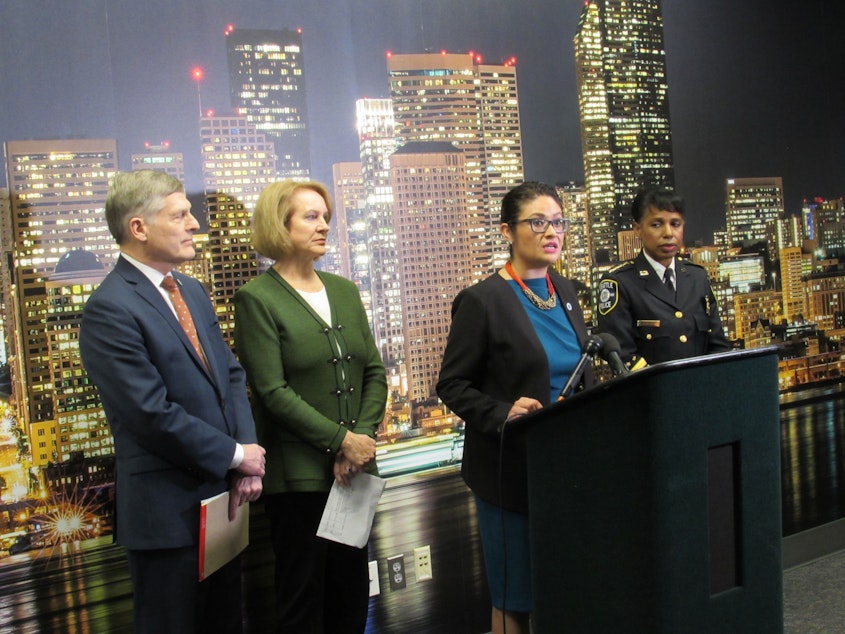Federal judge withholds blessing from Seattle's new police contract

The federal judge overseeing policing in Seattle has not endorsed the city’s proposed contract with its police officers.
But he said he can’t weigh in until it’s official.
Seattle’s Community Police Commission and the Justice Department both told Judge James Robart on Monday they have concerns that the proposed contract makes it harder to fire officers for certain offenses.
Anne Levinson, the former auditor for the Office of Police Accountability, said Robart seemed to hear them.
“I was encouraged that the court is taking very seriously the red flags that have been raised,” she said. But she said it would be better if he acted as soon as possible.
Robart said only once the contract is approved can he address any concerns that it hinders compliance with the federal consent decree. That decree says SPD must show no tolerance for excessive force or biased policing.
The judge said police deserve the pay raise included in the contract, but that salary is not an issue for the court.
Sponsored
He noted the two percent "pay premium" in the contract for officers who wear body cameras, calling it a "bribe" to follow orders he's already entered. City officials emphasized afterwards that officers do not have discretion to "opt out" of wearing the cameras if assigned to do so.
City Attorney Pete Holmes said if the judge ultimately finds problems, the city could resolve them while keeping the contract in effect so police officers can get the pay raise they have done without since 2015.
“We believe that we’re a long way away from having to wrestle with the question of whether any provision of the tentative agreement conflicts with federal law,” Holmes said. He said the city could reopen negotiations on certain issues, or work with federal and local officials to address the judge’s concerns.
Mayor Jenny Durkan said after the hearing that the various types of police oversight are working as intended when she helped craft the consent decree as U.S. attorney in 2012.
She said the Community Police Commission, made up of volunteers, is pushing the city to embrace the highest possible standards enshrined in its 2017 accountability law; and the judge is showing the oversight that has already helped Seattle improve its policing to achieve compliance.
“So what happened today is exactly what we structured this to be: For us to do what we think we need to do as city leaders. But at the end of the day to have an objective voice to make sure we were true to the reforms we needed and the consent decree,” Durkan said.
Sponsored
Seattle City Councilmember Lorena Gonzalez said she will seek approval of the contract by the Seattle City Council next week, while expecting Judge Robart to weigh in afterward. Gonzalez said she agrees with some of the commission's concerns, including the provision creating a new possibly higher bar for termination of any offense deemed “stigmatizing” for the officer.
But Gonzalez said the contract has significant improvements, such as creation of the new Office of Inspector General. "I appreciate the Community Police Commission playing the very important role of highlighting areas where we may have hit the mark, and areas where we did not quite achieve what we hoped to have achieved through the accountability ordinance,” she said.
Judge Robart asked Mayor Durkan whether the city’s police accountability ordinance — passed to much fanfare last year — is a “goal” or a “law.” Durkan said it is law, but the city is required to bargain its provision with the Seattle Police Officers Guild.
“We can’t impose it,” Durkan told him.
Robart responded that his court is not bound by that requirement, if he finds any aspect of the contract unconstitutional.




